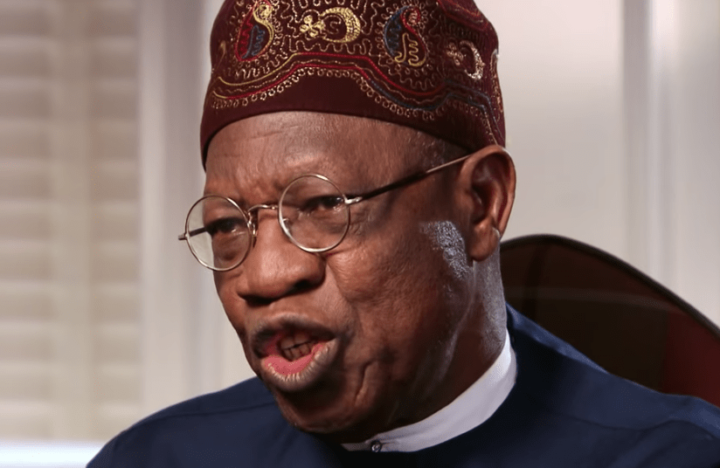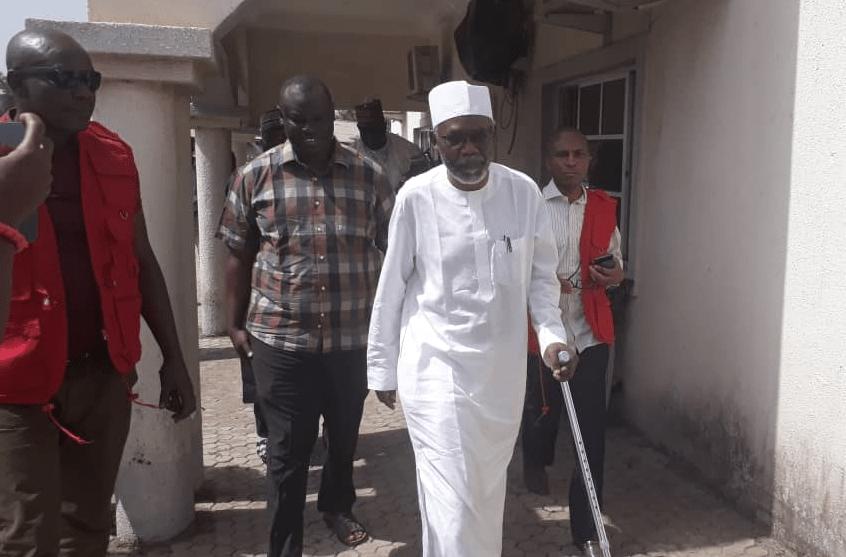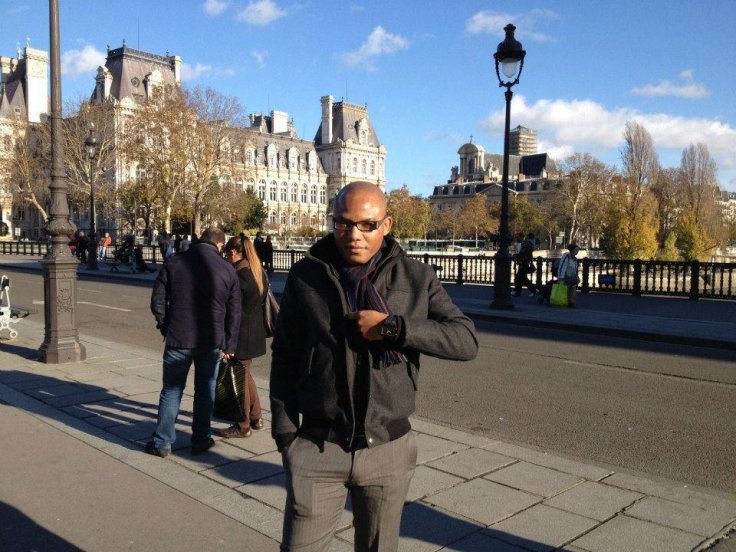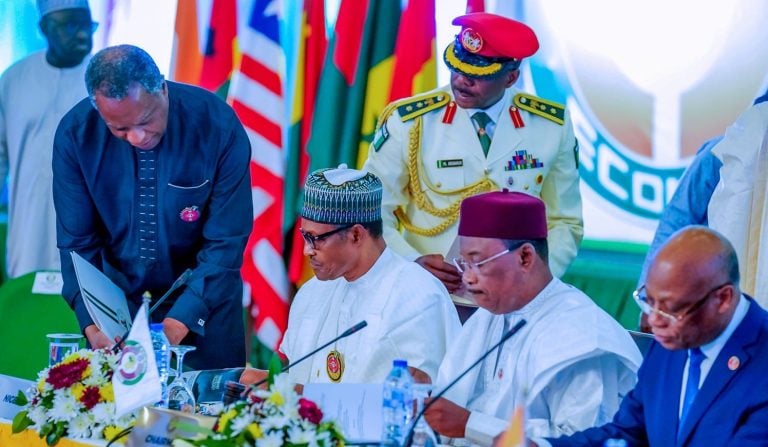Rubble of Nghakudun where 30 people died after an attack by armed herdsmen
Senami Kojah, an investigative journalist, travelled deep into the hot spots and no-go areas in the interiors of Bokkos local government area of Plateau state, which has recorded the killing of more than 100 people in attacks perpetrated by armed men, to investigate claims by the federal government that attacks on farmers have stopped and internally displaced persons are being resettled.
“This place we are going to, do we have security?” The question came through my phone, and immediately I went numb. I hadn’t thought of it, the need for security as I visited internally displaced persons (IDPs) supposedly in care of the government.
“Hello?” the voice came again, jolting me back to life.
“What do you think?” Makut Macham, my guide, queried.
Advertisement
“No I don’t, let’s just go. If I perish, I perish.” I said joking but dreading what was to come.
“Can you do it?” I asked.
“Why not?” he said, and with that, the phone dropped.
Advertisement
Armed with puffy jackets against the bone-freezing, wind-bellowing 8°C temperature, I began journey in search of the truth hidden in remote strings of villages in the Bokkos wilderness carved into mountains and overseeing boundless lush plains took approximately two hours 30 minutes.
It did not take long into the journey before we encountered machete-brandishing and sometimes gun-wielding men grazing at GanaRop, a picturesque mining community interrupted only by a military checkpoint installed after complaints by travellers that they were being ambushed robbed and sometimes killed.
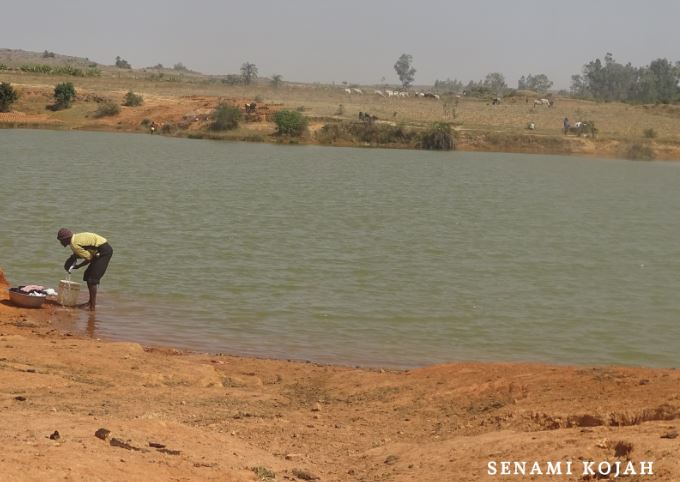
The armed men, according to Christopher Maren, a youth leader in the area, attacked and displaced the locals in their village.
“They drove their cows into the farms and destroyed all the crops. You can see the shiny roofing sheets; anytime they attack like that, the Fulani will occupy the houses of the people who used to live there and replace the roof with shiny sheets. That’s how they mark a territory they have taken over,” he said.
Advertisement
The middle belt region of Nigeria where Plateau state is has witnessed an increase in violence from 2011 till date. The attacks, according to a research by OpenDoors, a non-denominational mission supporting “persecuted Christians” in over 70 countries is fueled by internal migration resulting from environmental degradation caused by the climate crisis.
Since March 2018, a militia has led coordinated attacks on more than 21 villages within Bokkos local government area of Plateau, leaving more than 100 people dead and about 5000 people permanently displaced from their ancestral lands.
THE ROAD NOT TAKEN
We arrived at Morrok, a scantily-populated town which tore us from modernity and relative safety, ushering us into what the locals described a “no-go area” at exactly 2:47 pm. Before us was paradise, literally. Striped, chiseled rocks and tumbling valleys decorated vast green and lush planes that went on as far as the eye could see. It became clear what the bone of contention is.
Advertisement
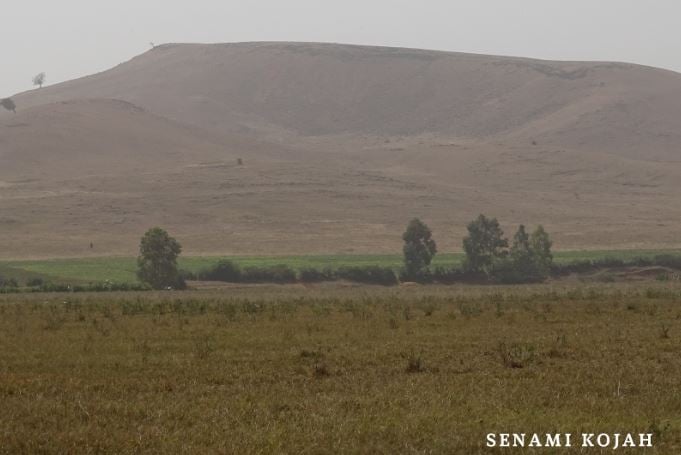
We were not welcomed here. Few minutes into our drive on collapsed ridges and dead road paths that held clues to the daily life of its former inhabitants, it became apparent that the new occupants of the half-charred huts with shiny roofs had become apprehensive. As we made the odd journey, men armed with scabbards housing lethal daggers and whatever else was hidden behind their jackets started to circle our labouring car.
After missing our way at least two times driving through farmlands that held corn and irish potatoes, which now housed hoofs and stationary dung, we decided to stop and ask one of our profilers who was riding on a motorcycle for the right way, “Which road leads to Nakudong?” we chorused. He pointed an unfamiliar path to the driver and we drove there.
Advertisement
Nghakudun, 2:53 pm. “I remember when this place was first attacked on March 8, 2018, it was terrible and the few survivors didn’t want to go back and bury their dead,” Maren said as we alighted.
“We had to call the commissioner of police at the time to come with his men and help evacuate the bodies. The bodies were being packed when the Fulani launched an attack on the CP. The only reason I was not killed that day is that I was the community leader. I was in the car of the Commissioner of Police showing him around. That was how I escaped.”
Advertisement
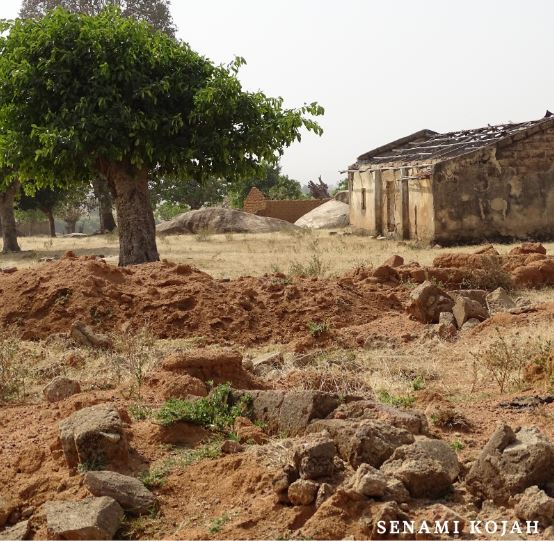
A similar incident happened on July 8, 2012, with Gyang Dantong, senator representing Plateau north, killed. Dantong was attending a funeral of his constituents allegedly killed by herdsmen when he lost his life.
The lawmakers had visited Maseh village in Riyom local government area after the discovery of the remains of 63 persons mostly women and children, burnt inside the residence of a local pastor where they had taken refuge following an attack on about 14 villages.
Advertisement
“Are these herdsmen that we are seeing the ones that launched the attack or was it a strange group?” I asked because at that point, they would zoom past us on motorbikes while others lurked from shrubs.
“Yes, we know them. We grew up together with most of these guys; they know who I am so there is no strange Fulani. Our fathers accommodated them and gave them land a long time ago to graze,” he replied.
Nghakudun stood quiet and bare, reduced to mud, sticks and a stone structure that once housed a church. Ten people died in the attack here.
“The people who lived here were about 400 and above. Nobody is living here, as you can see; most of them have moved to Daffo,” Maren said.
I continued in my quest into the plains that were now turning rocky and more difficult to access. As we approached another burnt down and deserted village, one of the locals who accompanied us from Jos but did not want to be named pointed out a rock to me.
“You see that rock, something is happening there. We came with the Red Cross a while ago to assess the situation in the village and when we came, we flew a drone over the rock to get aerial footage and when we were analyzing the footage back home, we noticed a cave guarded by armed men inside the rock,” he said.
“We suspected that is where they keep their arms which they use to attack the villages. We immediately alerted the Special Task Force (STF) commander and he said he and his men cannot go in there, that it’s too dangerous.”
The surveillance did not stop and at this point, it was too late to go back to seek help in the event that we were attacked by those monitoring our movements, so we continued. Also, there was no mobile network, no electricity, no shop, no town just burnt villages, cows, herdsmen and the settlement they live in.
Before its sudden demise, Fubok Mandung community had embraced modernity and boasted of a block of classrooms. After the attack, its furniture, roofing sheets and windows were looted and set ablaze, a former resident told me. It was attacked a day after Nakudong.
On our way to the next village, which had just six inhabitants who had returned to rebuild it from the ruins, I counted eight other villages that had been attacked and where people were killed, mostly in the dead of the night.
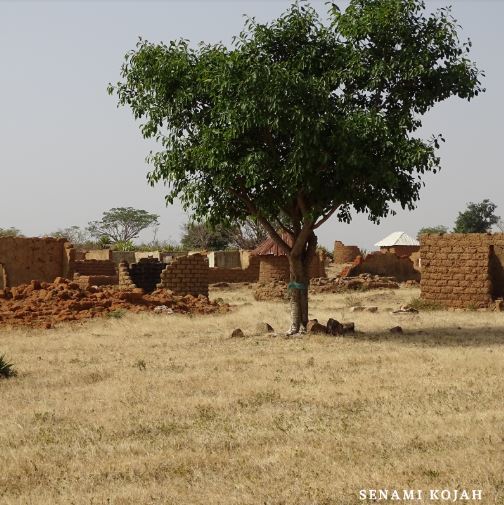
Despite the sensitivity and duration of the attacks, which have attracted attention, within and outside the country, there was no security presence during the four hours we spent penetrating the wilderness.
The chopping sound of axe on wood and the agitated solitary bark of a puppy ushered us into Mandung Ganda where about six people had returned to their village. This place, like all the other villages before it, was razed to the ground. It also marked a turning point in the story so far, one that shows deception and complete government neglect of IDPs in Plateau.
In December 2019, the Plateau government closed 12 camps housing internally displaced persons in the state, sending the victims back to their villages without provision for security or housing considering that their houses were usually razed to the ground when attacks occurred.
When I visited one of such camps at St John Vianney’s Seminary in Barkin Ladi local government area, I was told the camp had been closed and all residents had been ask to go back to their villages. Some however refused to return out of fear for their lives and now take on menial jobs to sustain their stay in the town.
Ezekiel Mandyau, the management committee chairman of Barkin Ladin, said the victims of the attacks were sent back home because peace had been restored.
“Not really that they are going to any home that has been built for them, not really that they are going back to any farm they had farmed but we think it is better they are home now that there is relative peace,” Vanguard quoted as saying
In December 2019, Simon Lalong, governor of Plateau, told Paulline Tallen, minister of women affairs, who hails from the state that some IDPs were asked to leave in order to reduce the population in the camps.
He said: “For those whose houses were not totally destroyed we handled it and asked them to return, that reduced the population of a lot of the population in the camps.”
Findings showed that despite benefiting from a N10 billion largesse towards the resettlement of IDPs in Plateau and Benue states since 2018, government has made little or no provision to ease the suffering of the victims of the attacks.
Back in Ganda Mandung, Cecilia Iliya is probably in her late 60s but she doesn’t know for sure because she has never had an education. Her birth was never recorded. She asked me to approximate. Fighting back tears with rapid blinking and swallowing, she narrated how her village was attacked.
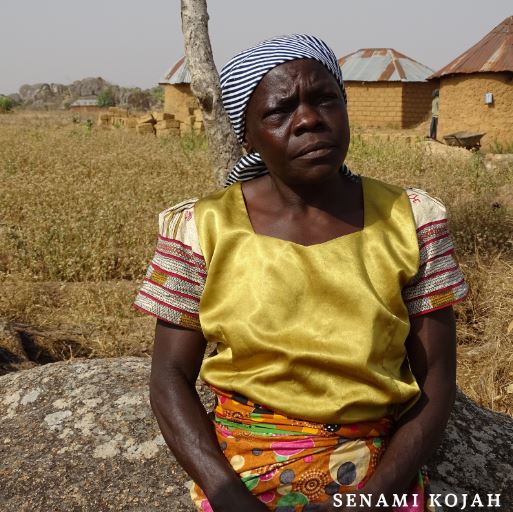
“We were living as usual when everything happened. Some of our boys were making blocks from the soil in their farm and a Fulani man accosted them and claimed that it is his farmland. The boys were shocked,” she said.
“They immediately became violent, asking why they were making blocks from their farmland. Our boys responded by saying they don’t have land here because they are only nomads who graze according to the season; they come and go.
“The Fulani then hit him with a scabbard and he reacted by hitting him with a stick. It escalated and they started to burn our houses. We had to run; we spent an entire year in Bokkos. This year, we had to return because the suffering was too much; no food, nothing to give the children, nothing.
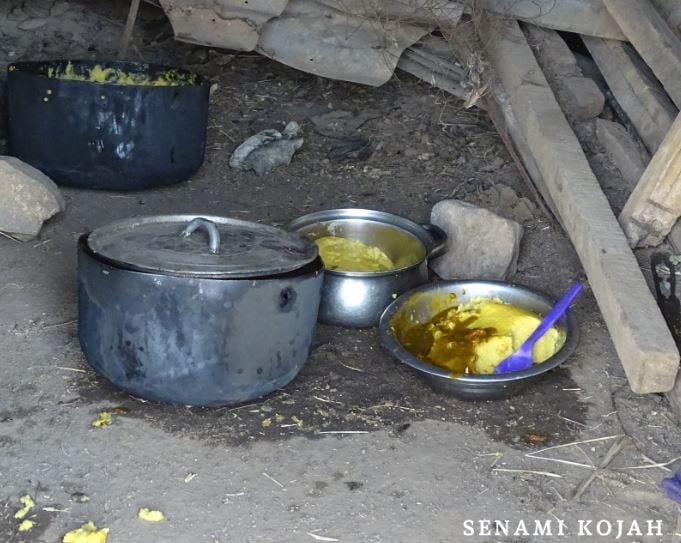
“We begged for farmlands to farm there and earn a living but the locals refused, saying we had to pay, we had no money. Last year, my children said they were tired of suffering in their own land so we decided to return. When we came, we slept on wrappers inside the burnt houses. I decided to come because the suffering was unbearable. If we live or we die, I’ll be here with my children till the end that’s why we came back.
“I know some other villages where people also took the same decision. We have never seen our elected representatives before not to talk of receiving help from them. We vote for them but they don’t care about us.”
A knock on Samaila Mahan’s door caused him to spring up from the earth-coloured wrapper spread on the bare floor, which he sleeps on. The 76-year-old farmer returned to his destroyed village because, according to him, he was hungry and without much to do in Bokkos town.
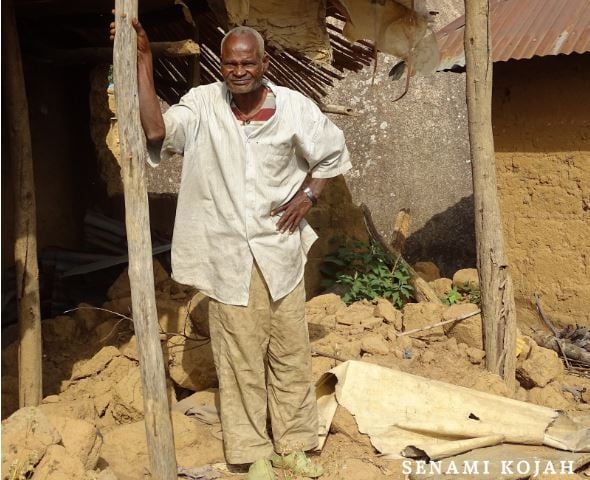
“It’s traumatic anytime I remember. Look at our houses, lying flat on the floor, we couldn’t do anything because we were overpowered when the attack happened. Our traditional ruler said he tried to mediate; we can only hope for peace. Now that a few of us are back, we have no place to sleep much less put our belongings,” he said.
When I asked if he had received any help from the government to return to his village, his answer was: “No”.
As I exited Mahan’s hut, I happened upon James Luka, a well-built 35-year-old who doesn’t live in Ganda Mandung but in another village across. He said when the attackers raided his village, everyone escaped alive but the village was burnt to the ground.
“They didn’t kill in my village but they condemned everything, our houses; they also slaughtered all our animals. I live in fear. I sleep exposed in cold and in all weather. The government has done nothing.
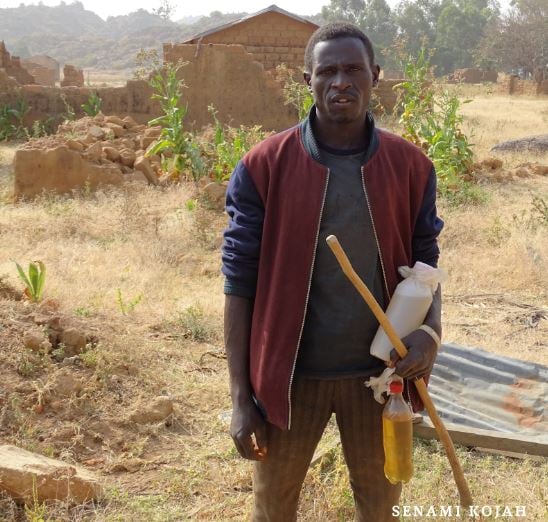
“I couldn’t cope in Bokkos. I have no skills suited for there. All I know is how to farm; this is my home. I prefer to stay in my home even if it means I die,” he said with steely resolve.
While in the village, I saw a block of classrooms which serves as a polling unit during elections. The locals said this is their only contact with government officials, who make the painstaking journey to the village once during electioneering every four years but never return afterwards.
The classroom is now abandoned with roofing sheets stolen, burnt churches now overrun by wild monkeys litter the village where a community of six people have resolved to return.
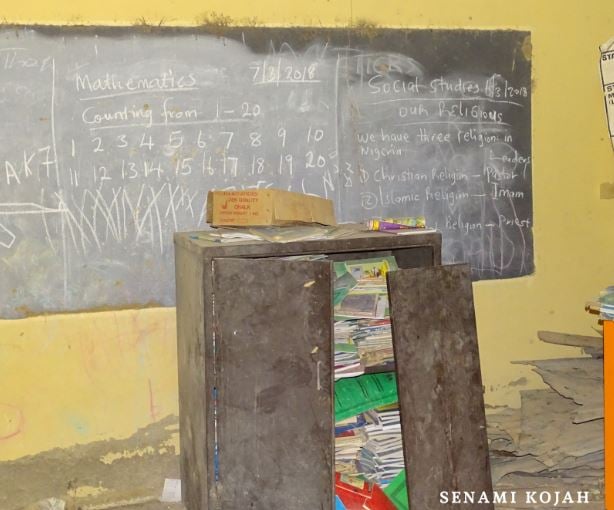
We passed five more sacked villages after Ganda Mandung on our way to Daffo, where some of the villagers had been absorbed by relatives or church missions.
Maren, my guide, offered to tell me how some of the attacks happened. “You see this community when they attacked it, the people were running towards Daffo,” she said. “Unknown to them, the Fulani had positioned themselves strategically on these rocks; they shot at people from up and from down. It was a terrible night.”
In Daffo, I wanted to meet with the SAF Daffo, the traditional ruler who oversaw all the villages I had been to. A source had said the local chief connives with the government and sometimes the attackers to mask the intensity of the situation in the area and that he usually avoids journalists but I still wanted to try.
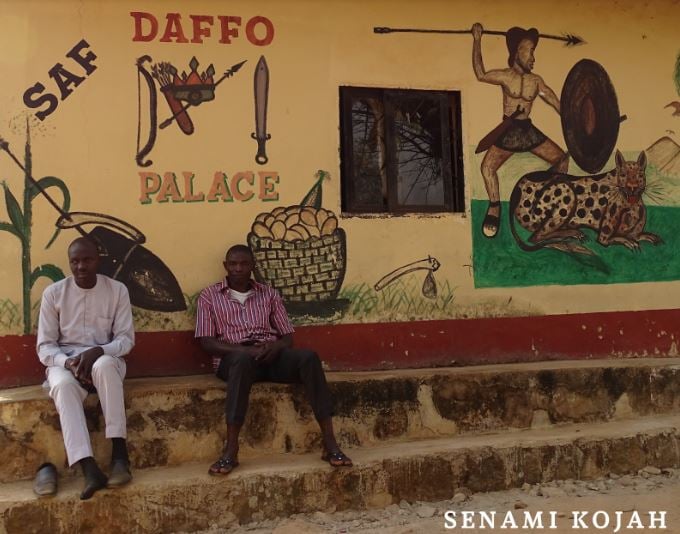
Upon entering the palace, I was told he wasn’t around despite the fact that the staff had earlier told me he was in his room. I ended up talking to his secretary who assured me that all was well in their communities and that the government was restoring peace in the area.
“Each time there is a breakout of attacks like this, you will hear the government say ‘unknown gunmen’. They are not unknown; they are known already. If we say we don’t know them, then we are fools. I don’t think Nigerians should be fools,” said Samuel Matawal, a reverend and lead pastor at Church of Christ in Nations (COCIN), LCC Bokkos central, where I went the next day to see IDPs that had been abandoned and now taking refuge at the church.
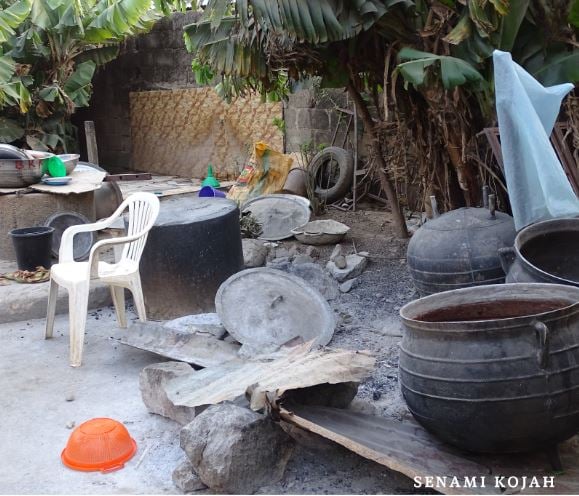
Packed with people, the church absorbed almost all the IDPs attacked in the villages. An official said the church only received donations from the Plateau State Emergency Management Agency once after that attack. The supplies lasted just one day and the church has struggled to cope ever since.
“We started getting IDPs here from 19th February 2018 from Daffo. After March and April 2018, we tried to get church members to absorb them. There was another influx of IDPs from Kazok, Burdunga and Ruku, and they live here, until now,” Matawal added.
I learnt that some of the IDPs from one of the worst hit villages, Ruku, were 1,463 — comprising of 684 children, 411 adult males and 375 women.
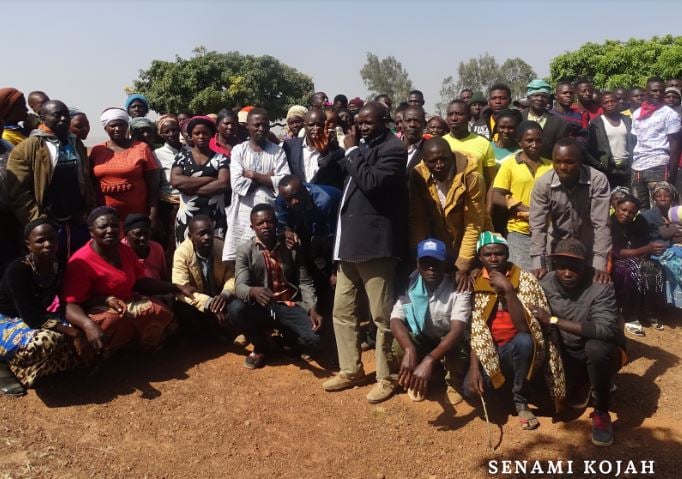
Magwai Peter, head of the IDPs in the church, said the government had been using the displacement of people to play politics while deceiving the media and the world that relocation was taking place.
He said: “We have suffered. If not for the churches who have been looking after us, we have no one to help. The relocation committee told us to leave our ancestral homes from the Fulani. They said because the terrain is rugged, anytime there is an attack it will be difficult to get security to us.
“No one came out with anything; we lost everything. The same the attack was carried out, the herdsmen grazed on all our farms. But even in the new land they provided, we started building and the same Fulani who attacked our village in Ruku came in the night and demolished everything. They put a red flag on the land, which is a traditional message to stay off.”
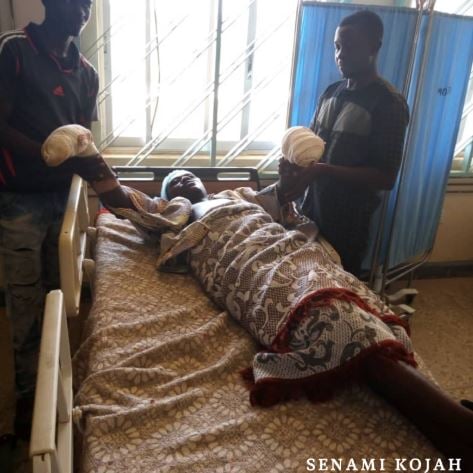
A local from Ruku who did not want to be named told us the relocation committee inaugurated by the government came with relief materials and journalists who took photos of the items being distributed. He said that afterwards, the relief material was taken by the committee from the IDPs on the guise that it would be reallocated but they have not heard from the committees since then.
Danladi Atu, chairman of the IDP Relocation Committee in Plateau, neither responded to calls or text messages during the attempts to seek his response to the allegations.
THE JOURNEY TO RUKU
On getting close to Ruku, we met more than 100 IDPs who had converged to discuss a way forward in rebuilding their lives. They insisted I see the ruins of their village to fully understand what happened the night 40 were killed. I hopped on a motorcycle provided by the locals and was escorted by seven others who, though unarmed, volunteered to protect me and my guide in the event of a surprise ambush.
We galloped through the narrow undulating rocky paths dotted with teal green mining ponds and grazing cows. I was told to hide my camera so the herdsmen don’t suspect I was carrying a gun because of the strap. Terrified, I tucked it underneath my jacket to create an uncanny bulge in my tummy.
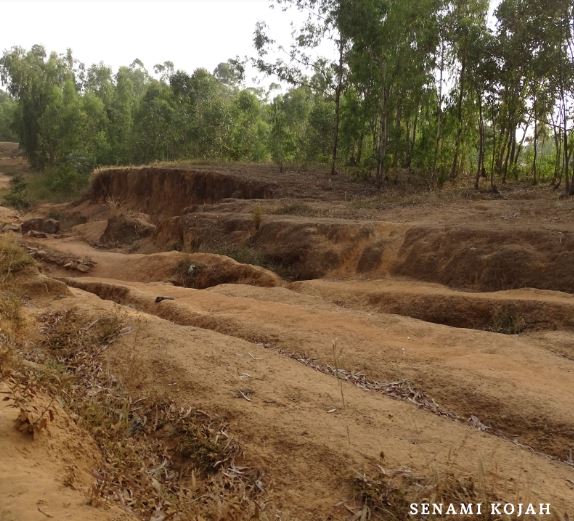
After many minutes, we arrived Ruku. It lay bare, with red mud bricks which signified the community that once thrived. Now, here looked like it had been crushed in a deliberate pounding attempt.
“We were in our house when we saw that we were surrounded,” recounted Lydia Sati, a nursing mother who escaped with her toddler. “We packed our children and ran into the house and locked the door. The shootings did not stop. We screamed for help but no one came; they burnt our motorcycle and looted all our belongings. I lost my husband and two children.”
Recalling the events of June 8, 2018, when Ruku village was attacked, Deborah Danjuma said she was shocked when she saw those she interacted with in the community attacked her house.
“The people who attacked us we accommodated as guests for many years,” she said. “We were sitting at home around 3pm in the evening when we started hearing gunshots. They came ready for war and because we think no ill towards them, we had nothing to defend ourselves. I saw like seven people burn right before my eyes. We don’t have anywhere to go; the government has completely forgotten us.”
As I was conducting interviews in the backdrop of the ruins, the village was surrounded once again by herdsmen who had been wandering since we arrived on motorcycles. A confrontation ensured and I was whisked away by the youth who had accompanied me. I escaped the ambush by speeding through the rocks.
Nura Abdullahi, former state chairman of Miyetti Allah Cattle Breeders Association of Nigeria (MACBAN) in Plateau, condemned the killings in Bokkos.
“It is barbaric what is happening in Bokkos and I condemn it in its totality. I do not support what is happening there because I am a Nigerian with humanity,” he said.
He added that the killing of innocent people is anchored on criminality.
“We should sheath our swords and allow peace to reign in our domains. When we are taking laws into our hands by not allowing others to be in peace, we also will not be in peace. The best thing is to embrace peace which is very sweet. Peace is a process and everyone must work for it, we must tell ourselves the truth,” he concluded.
A source in the presidency said a policy document titled: “Livestock Alienation & Rural Management Initiative (LARM)” which proposed a comprehensive solution to the attacks was tabled before President Muhammadu Buhari via Vice-President Yemi Osinbajo but the document was thrown out to make room for Ruga, which was suspended following nationwide backlash.
The document, called for indigenous ownership of grazing paddocks by locals who will in turn lease it to herdsmen. The move is targetted at empowering the indigenous land owner well as the herdsmen who will abandon the nomadic lifestyle and whose children can also attend schools.
Makut Macham, an architect and local politician in the area, wondered why the government ignored the plight of people in Bokkos.
“I usually wonder why Bokkos is being overlooked in all of this,” he said.
“We are peace-loving and all we want to do is to get by through life, so I am wondering why we are the victims over and over again. Why are we under attacks? What is the function of government? We are not begging government or pleading with the government to do what they are not supposed to do; we are pleading with them to do the constitutional thing.
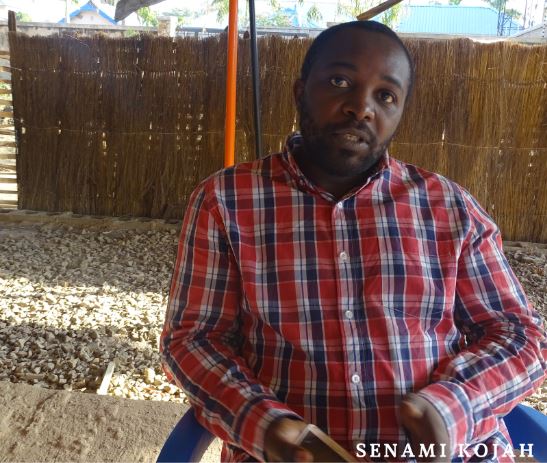
“What will it take for government to hear the cry of its people? We are demanding justice. The perpetrators of violence should be brought to book. Those who have killed our traditional rulers should be charged to court and they should be treated as criminals. Let’s not get to a point where criminality is seen as a form of bargain or enrichment. Why should our lands be taken from us and government just sits, keeping mum about it? Something needs to be done now, we demand for justice!”
This story first appeared on SaharaReporters
Add a comment

